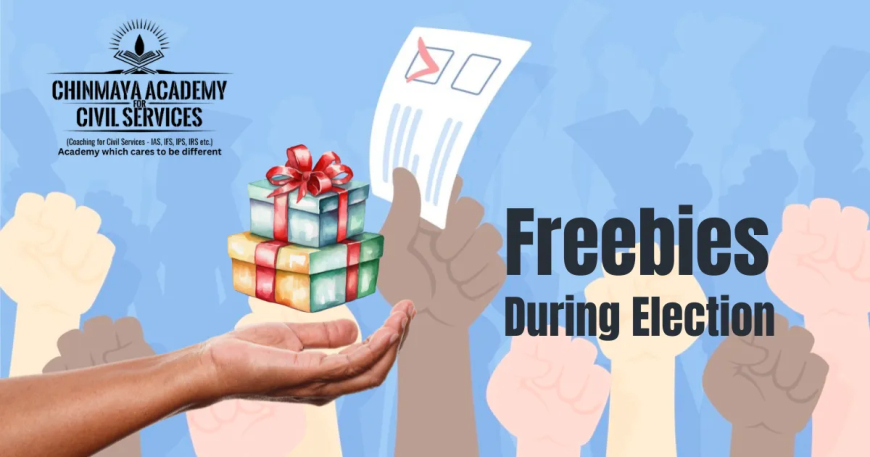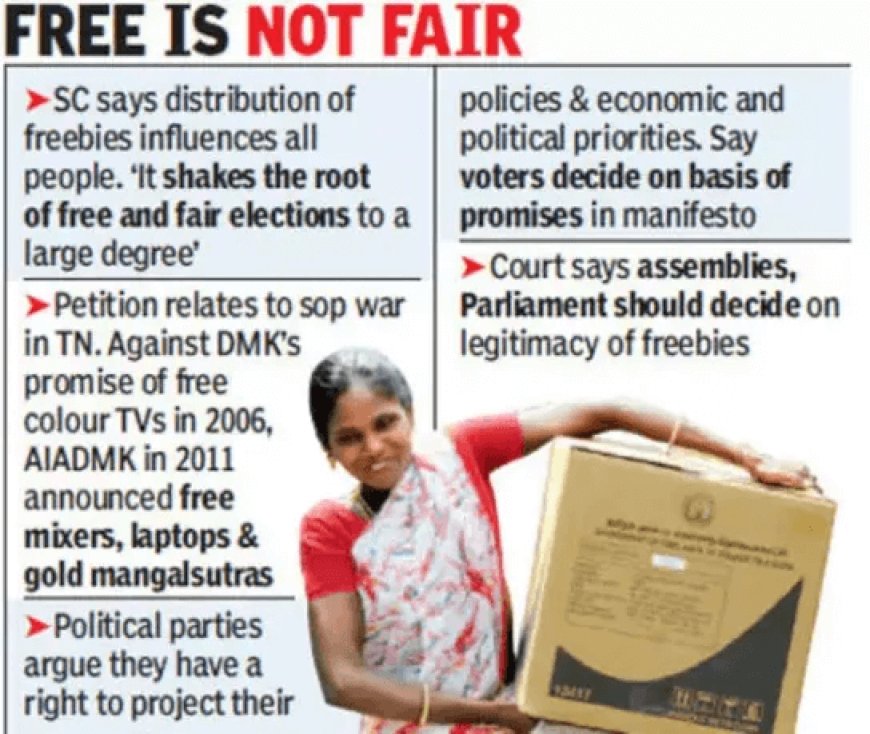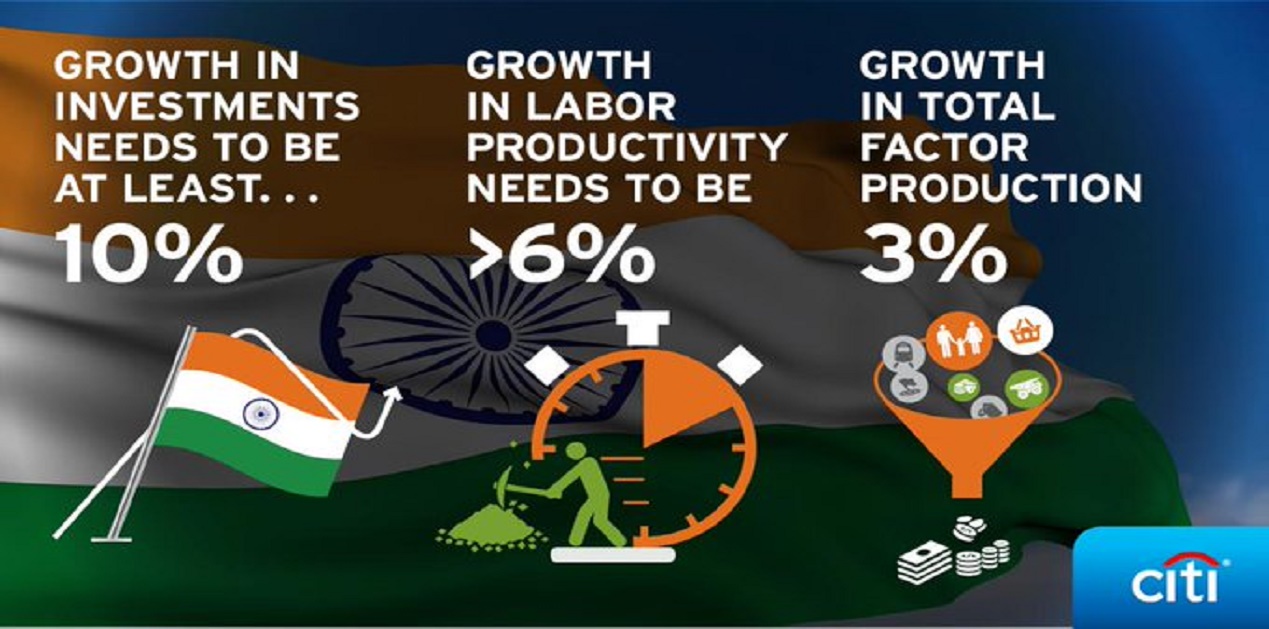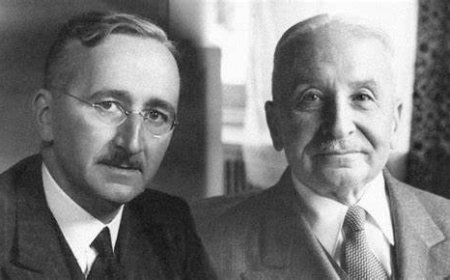Election Freebies: The Real Ponzi Scheme That No One Talks About

Introduction: ‘Free’ Comes at a Price

Every election season, political parties across India engage in a bidding war of freebies. From free electricity and water to direct cash transfers and loan waivers, politicians leave no stone unturned to attract voters.
The problem? Nothing is truly free. Someone always pays, and that someone is you—the taxpayer.
Governments don’t generate wealth; they redistribute it. When they promise to give away free goods and services, they either:
- Increase taxes (taking money from you directly),
- Print more money (leading to inflation that eats away your savings), or
- Take loans (which you and future generations must repay).
Election freebies might seem attractive in the short term, but in the long run, they turn into a Ponzi scheme where the last ones in—usually taxpayers—are left holding the bag.
The Real Cost of Election Freebies
1. Higher Taxes on the Middle Class

Governments finance free schemes primarily through tax revenue. Since India already has a low base of direct taxpayers, the burden falls on the salaried middle class through:
- Higher income taxes
- Increased GST rates on essential goods
- Higher fuel taxes (one of the biggest sources of government revenue)
Despite paying these taxes, the middle class often doesn’t qualify for the benefits of these schemes, making them the biggest losers in the system.
2. Rising Inflation: The Hidden Tax on Everyone

When governments print money to fund freebies, it leads to inflation—which acts as an invisible tax on everyone. Prices of food, fuel, rent, and everyday goods go up, reducing the purchasing power of common people.
For example:
- In Sri Lanka, excessive government spending on subsidies and freebies led to hyperinflation and economic collapse.
- In Venezuela, printing money for welfare programs destroyed the economy, leading to shortages and black markets.
The lesson? No country can afford to give away endless benefits without serious consequences.
3. Unsustainable Government Debt

To keep their freebie promises, governments take massive loans, pushing India into deeper debt.
- India’s total government debt stands at ₹155 lakh crore (as of 2024) and keeps rising.
- Interest payments on debt alone consume over 20% of government revenue, leaving less money for actual development.
This means future generations will have to repay loans for today’s election gimmicks.
4. Freebies Kill Productivity & Growth

Instead of creating self-reliant citizens, freebies encourage dependency. Why work hard if the government is giving free money, electricity, and food?
- Farm loan waivers discourage responsible borrowing and hurt banking systems.
- Free job guarantees lower private sector employment, as people prefer government handouts over real jobs.
- Subsidized or free electricity leads to power wastage, burdening the economy.
Countries that progressed, like South Korea and Singapore, focused on entrepreneurship, free markets, and economic freedom—not freebies.
Why Do Politicians Love Freebies?
Election freebies are not about helping people—they are about winning votes.
- Politicians give short-term benefits in exchange for long-term control.
- Freebies create dependency, ensuring voters keep supporting the same parties.
- Since the cost is hidden (higher taxes, inflation, or debt), most voters don’t realize they’re paying for their own “free” benefits.
It’s modern-day feudalism, where the government plays the role of the “benevolent king,” and citizens are kept dependent instead of empowered.
What’s the Alternative? The Libertarian Solution
Instead of wasting money on election gimmicks, India needs real reforms:
✔ Lower taxes so people keep more of their hard-earned money.
✔ Encourage entrepreneurship by removing regulatory hurdles.
✔ Improve infrastructure instead of handing out short-term benefits.
✔ Direct cash transfers (if needed) that let people choose how to spend their money.
The goal should be economic freedom and self-reliance, not government dependence.
Conclusion: There’s No Such Thing as a Free Lunch
Election freebies might feel good today, but they come at a steep price—higher taxes, inflation, and economic stagnation. The real question is: Do we want a future built on productivity and growth, or one where politicians buy votes with our own money?
The next time a politician promises something for free, remember—you’re the one paying for it.
What's Your Reaction?



















































